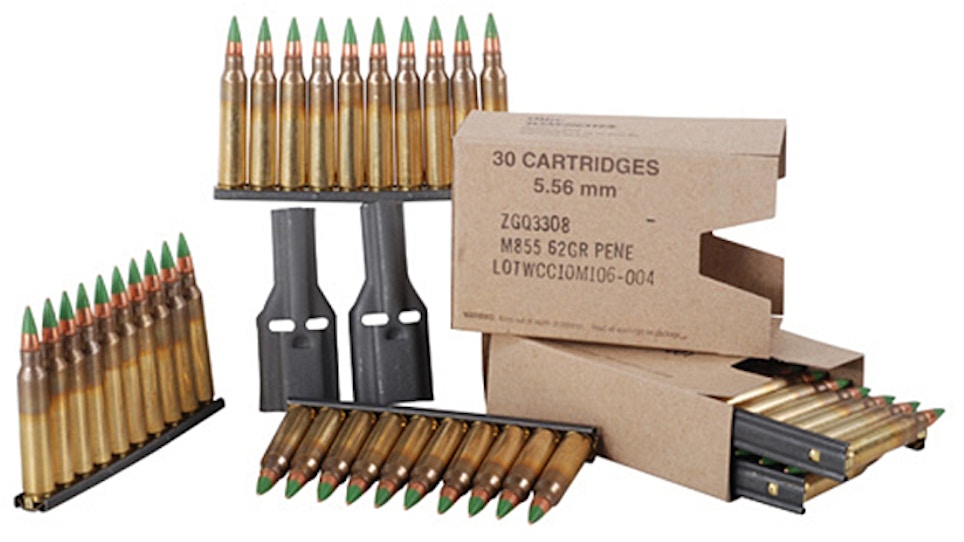In a short statement issued March 10, the Bureau of Alcohol, Tobacco, Firearms and Explosives backed away from its proposed ban on the sale and manufacture of the popular M855 round used primarily in AR-15 rifles.
The ATF proposed a new method for determining which so-called "armor-piercing" ammunition that could be fired from a pistol should be restricted, and said it had received more than 80,000 comments that were "critical of the framework."
"Although ATF endeavored to create a proposal that reflected a good faith interpretation of the law and balanced the interests of law enforcement, industry, and sportsmen, the vast majority of the comments received to date are critical of the framework, and include issues that deserve further study," the ATF said in a statement. "Accordingly, ATF will not at this time seek to issue a final framework."
The original proposal which was released last month prompted a strong reaction from the shooting public, with most seeing the move as a way for the Obama Administration to regulate gun ownership through executive action after being stymied by Congress. Major news networks covered the story and the National Rifle Association lobbied hard to keep the regulation at bay.
The ATF argues that since the M855 round incorporates some steel in its construction and can be fired from an AR-style pistol, it is in violation of the 1986 Law Enforcement Officer Protection Act which bans pistol rounds that can penetrate soft body armor worn by police. Gun owners argued that all rifle ammunition is technically armor-piercing due to its velocity, and that if the ATF could ban M855, it could eventually ban all rifle ammunition.
The White House sided with the ATF, saying the M855 ban was a "common sense" solution to an emerging threat to law enforcement, but there has so far been no documented case where a police officer was threatened by M855 rounds fired from an AR pistol.
And after a major backlash in Congress, including a letter to the ATF signed by more than 250 lawmakers and a bill introduced in the House to bar the ATF from any future ammo bans, the gun regulating agency relented.
"ATF will process the comments received, further evaluate the issues raised therein, and provide additional open and transparent process (for example, through additional proposals and opportunities for comment) before proceeding with any framework," the ATF said.






